A Si diode (p-n junction) is connected to a resistor and a biasing battery of variable voltage . Assume that the diode requires a minimum current of 1 mA to be above the knee point 0.7 V of its V-I characteristic curve. Also assume that the voltage V across the diode is independent of current above the knee (cut-off) point If = 5V, then the maximum value of R so that the voltage V is above the knee point voltage, should be

The correct Answer is:B
Topper's Solved these Questions
- SEMICONDUCTOR ELECTRONICS : METERIALS, DEVICES AND SIMPLE CIRCUITSBOOK - DISHA PUBLICATIONCHAPTER - SEMICONDUCTOR ELECTRONICS : METERIALS, DEVICES AND SIMPLE CIRCUITSEXERCISE - EXERCISE -1: CONCEPT BUILDER (TOPICWISE)
56 Videos
- RAY OPTICS AND OPTICAL INSTRUMENTSBOOK - DISHA PUBLICATIONCHAPTER - RAY OPTICS AND OPTICAL INSTRUMENTSEXERCISE - Exercise -2 : Concept Applicator
26 Videos
- SYSTEM OF PARTICLES & ROTATIONAL MOTION BOOK - DISHA PUBLICATIONCHAPTER - SYSTEM OF PARTICLES & ROTATIONAL MOTION EXERCISE - EXERCISE-2 : CONCEPT APPLICATOR
28 Videos
Similar Questions
The junction diode in the following circuit requires a minimum current of 1mA to be above the knee point (0.7V) of its I−V characterstic curve. The voltage across the diode is independent of current above the knee point. If VB=5V, then the maximum value of R so that the voltage is above the knee point, will be
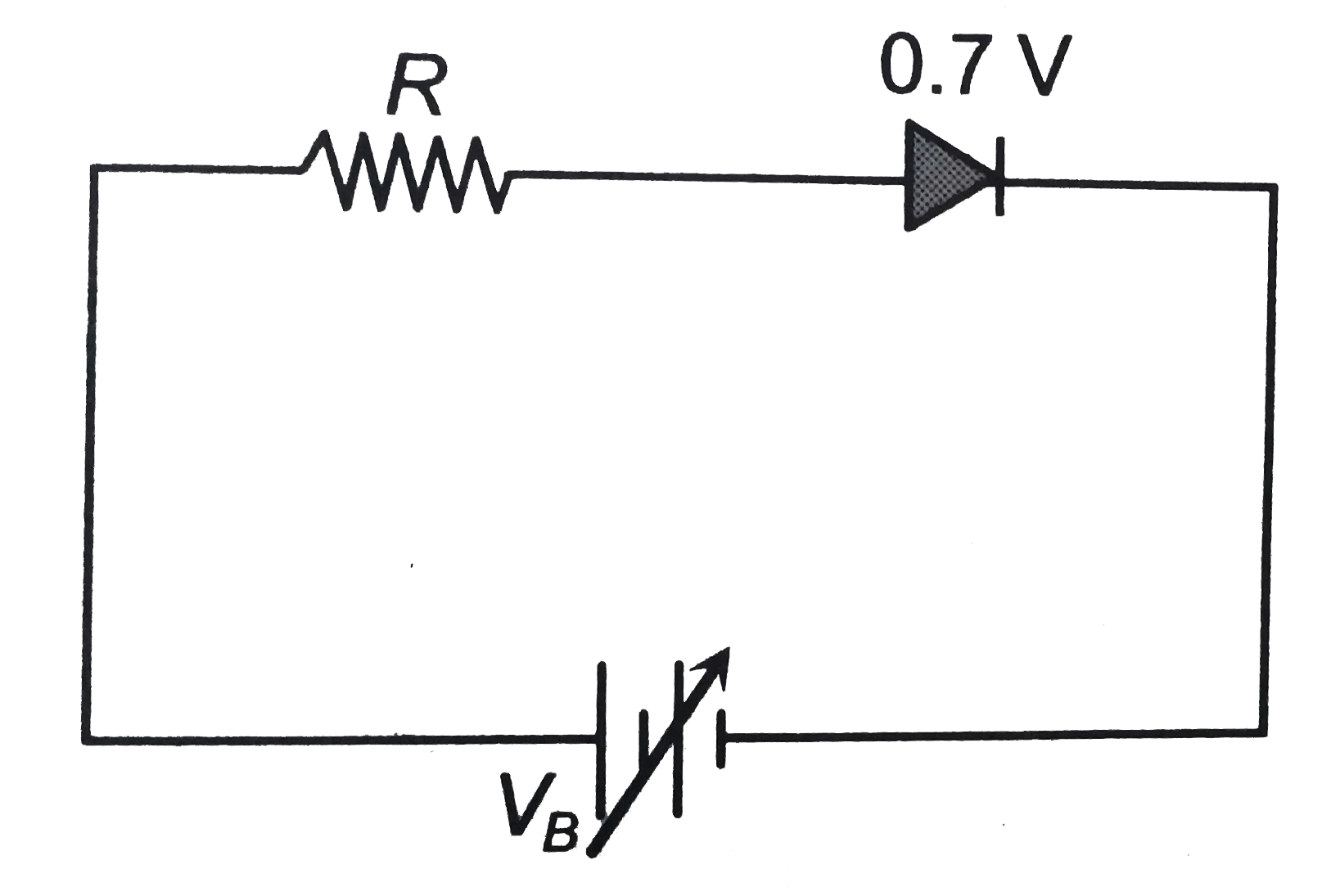
View SolutionAssume that the silicon diode in the given circuit requires a minimum current of 1 mA to be above the (knee-point voltage = 0.7 V) of its I−V characteristics. Assuming that the voltage across the diode is independent of current above the knee-point, find the maximum value of R so that the voltage is above the knee-point if VB=5A. Also find the value of R to establish a current of 5 mA in the circuit for the since voltage.
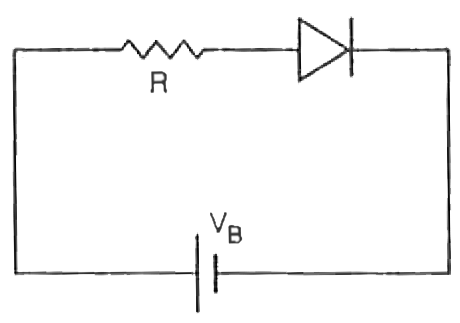
View Solution
Knowledge Check
The junction diode in the following circuit requires a minimum current of 1mA to be above the knee point (0.7V) of its I−V characterstic curve. The voltage across the diode is independent of current above the knee point. If VB=5V, then the maximum value of R so that the voltage is above the knee point, will be
 A4.3kΩB860kΩC4.3ΩD860Ω
A4.3kΩB860kΩC4.3ΩD860ΩThe 6 V Zener diode shown in the figure has negligible resistance and a knee current of 5 mA. The minimum value of R (in Ω) so that the voltage across it does not fall below 6 V is
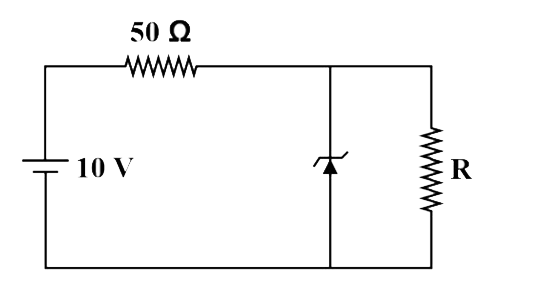 A40B60C80D120
A40B60C80D120
Assume that the silicon diode in the circui shown in fig. requires a minimum current of 1mA to be above the knee point (0.7V) of its I−V characteristics. Aslo assume that the voltage across the diode is independent of current above the knee point.
(a) If VB=5V, what should be the maximum value of R so that the voltage is above the knee point?
(b) If VB=5V, what should be the value of R to estabilish the current of 5mA in the circuit?
(c) What is the power dissipated in the resistance R and in the diode, when a current of 5mA flows in the circuit at VB=6V?
(d) If R=1kΩ, what is the minimum voltage VB required to keep the diode above the knee point?
View SolutionThe junction diode in the following circuit requires a minimum current of 1mA to be above the knee point (0.7V) of its I−V characterstic curve. The voltage across the diode is independent of current above the knee point. If VB=5V, then the maximum value of R so that the voltage is above the knee point, will be

View SolutionIn the current versus voltage characteristics of a diode minimum current of 1 mA is required for the knee voltage to be is connected in a cirucit the minimum value of R so that the voltage is above knee point is
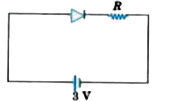
View SolutionIn the given circuit the voltage drop across the diode is 0.8 V, if the diode can withstand current upto maximum of 30 mA, then find the maximum voltage of the battery
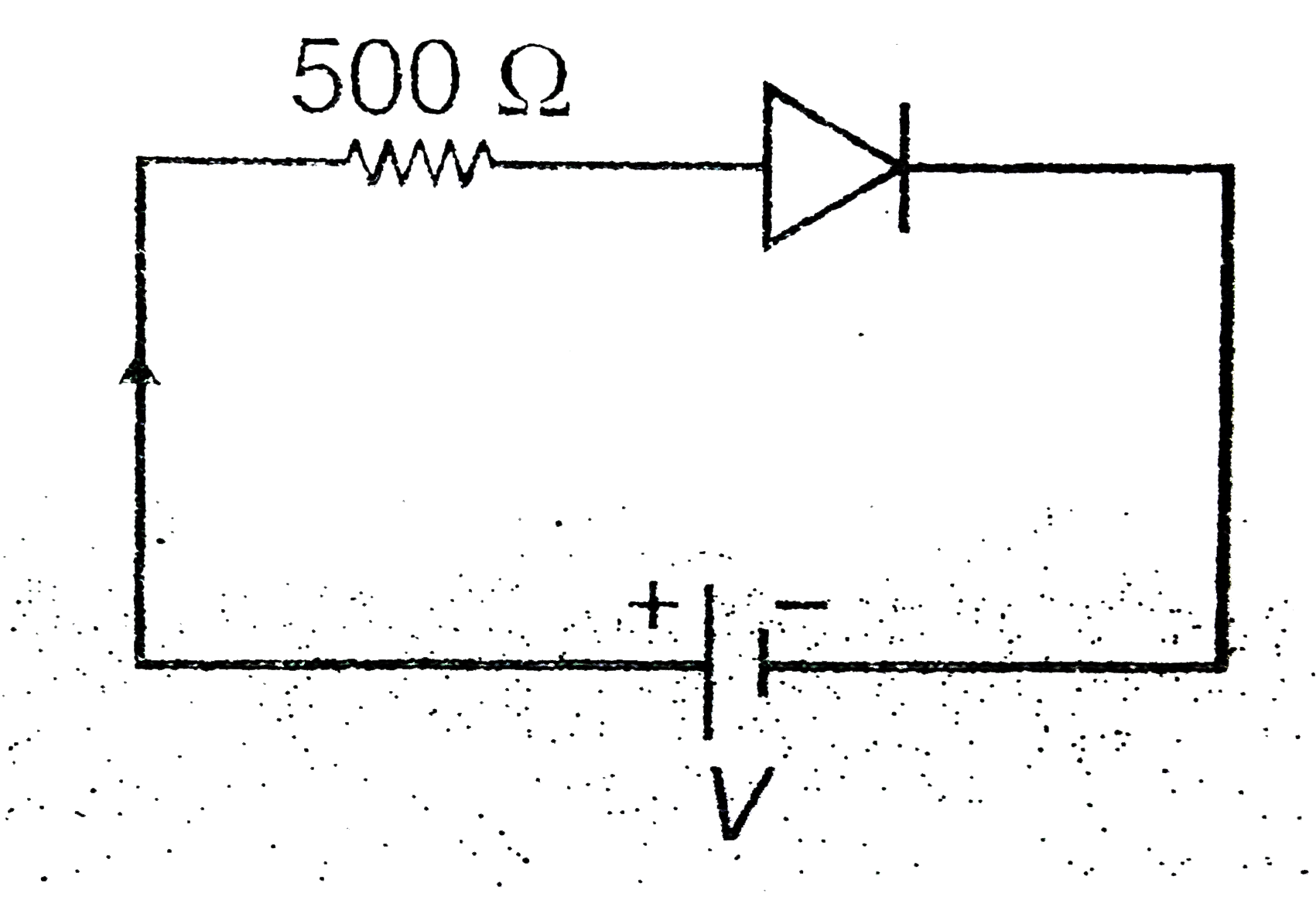
View SolutionIn the given circuit the voltage drop across the diode is 0.8 V, if the diode can withstand current upto maximum of 30 mA, then find the maximum voltage of the battery

View SolutionThe silicon diode shown in fig. is rated for a maximum current of 10mA. Calculate the minimum value of resistor R . Asume the forward voltage drop across the diode to be 0.7V.

View Solution
